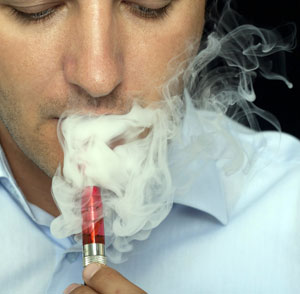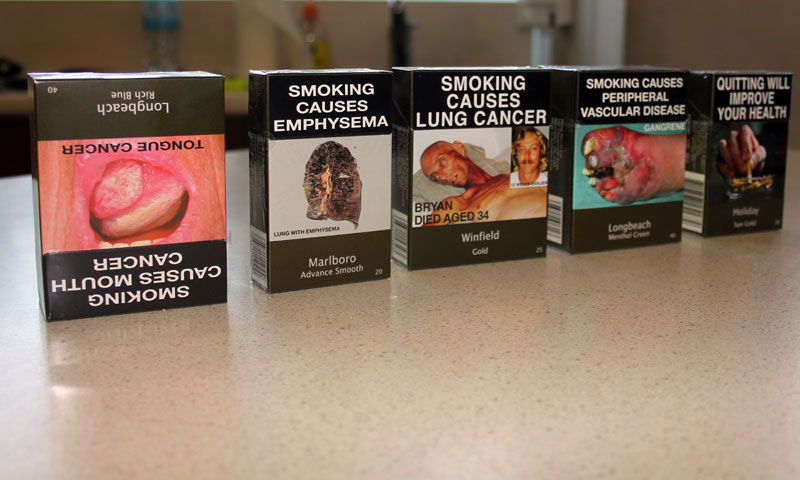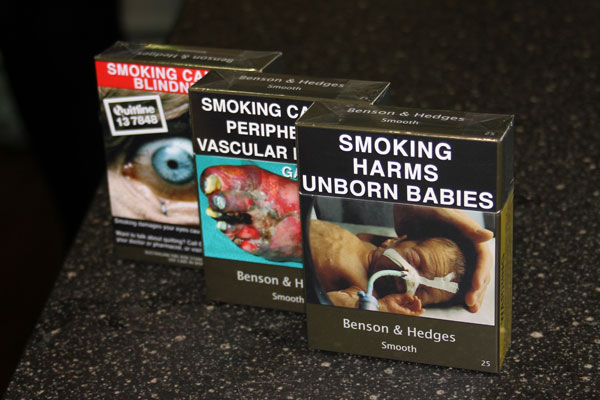Israel’s ministerial committee for legislation yesterday scuttled a bill that would have banned most tobacco-products advertising, according to a story in Arutz Sheva (IsraelNationalNews.com).
The bill, which would have embraced electronic cigarettes, would have excluded advertisements in printed newspapers, though newspapers would have been required to print anti-smoking messages of the same size as the advertisements alongside the advertisements.
The decision to torpedo the bill enraged Yehuda Glick, a member of the Knesset.
He alleged that the Government had succumbed to the interests of the media, which would have lost considerable sums from the loss of tobacco advertising, and the major tobacco companies.
“The Israeli Government is addicted to, bought by, and works for the tobacco companies,” charged Glick.
“The government never intended to approve the law. The postponement of the smoking products bill in the ministerial committee, after the law passed through my committee for first reading, is crossing a dangerous red line of government service for tobacco tycoons.”
Glick has made fighting smoking a major cause of his in the Knesset and recently ended a 25-day hunger strike he said was designed to pressure the government into raising taxes on rolling tobacco.
Category: Regulation

Advertising bill scuttled

HNB warnings coming
South Korea’s Government has decided to require the inclusion of graphic health warnings on heat-not-burn (HNB) product packaging, according to a story in The Korea Times.
The Health and Welfare Ministry published their proposed graphic warnings for HNB product packs from May 14 to June 4 to gauge public opinion.
In response, cigarette manufacturers, distributors and smoking groups submitted eight dissenting opinions against the government’s decision. They asked the government to use ‘less provocative graphics’ and to take out numbers linked to mortality risk and disease.
However, health operatives and civic groups submitted 143 opinions of agreement supporting the government, with some asking that the warnings be enlarged.
The Ministry says it has now selected graphic warning labels and messages that will have to be printed on the packs.
It said the warnings would include an image of a cancer cell accompanied by a message saying ‘heat-not-burn e-cigarettes addict you to nicotine and expose you to carcinogens’.
“According to the latest study by the Ministry of Food and Drug Safety, various cancer-causing agents like benzopyrene and benzene were detected in HNB cigarettes,” a Ministry official said.
“The Ministry has concluded that the HNB cigarette companies’ argument that their products are less harmful than traditional cigarettes lacks evidence.”
A matter of timing
A member of the European Parliament has suggested that the European Commission would be putting the commercial interests of tobacco manufacturers before the health interests of EU citizens if it issued a legal challenge to Belgium’s proposal to ban menthol cigarettes.
In a preamble to his question, the Belgian MEP Philippe Lamberts said the purpose of the EU’s Tobacco Products Directive was better to protect consumers, particularly young people, by considering new scientific knowledge and legislating on new tobacco products, including e-cigarettes.
Specifically, the TPD banned the sale of menthol cigarettes from May 20, 2020.
‘Tobacco use is the most common cause of premature death in the EU,’ he said. ‘On average, 700,000 smokers die each year and smokers die 14 years earlier than non-smokers. That figure is almost 20 times higher than the number of premature deaths caused by fine particulate nitrogen oxide emissions, the dangers of which came to light during the “dieselgate” scandal. Of people aged between 15 and 24 years old, 29% are smokers.’
Lamberts said the Belgian press had reported that the Commission was threatening to bring legal action against the Belgian Government because it was seeking to ban the sale of menthol products before 2020. (See the June 18 story: Brussels threat to Belgium)
‘In doing so, the Commission would be putting the commercial interests of manufacturers before the public health interests of EU citizens,’ he said.
He then asked:
‘What is its justification for that stance?’; and
‘Is the Commission’s position not contrary to Article 9 of the Treaty on the Functioning of the European Union, which provides that “in defining and implementing its policies and activities, the Union shall take into account requirements linked to (…) a high level of (…) protection of human health”?’
The Commission is due to reply in writing.
Banning tobacco
A recent meeting in Sri Lanka tried to sell the idea of switching tobacco growers to ‘alternative’ crops. Something needs to be done because the Government is planning to ban tobacco cultivation from 2020.
According to a story in The Lanka Business Online, also from 2020, the Government plans to ban the importation of ‘cigarettes and tobacco’. If tobacco here refers to leaf tobacco, then the country is moving towards prohibition and the repercussions could be enormous.
Sri Lankan consumers’ annual expenditure on cigarettes and tobacco is higher than the annual export revenue the country earns through the EU GSP Plus, according to the Lanka Business story quoting the Industry and Commerce Minister Rishad Bathiudeen. The EU GSP (European Union Generalised Scheme of Preferences) helps developing countries export their products to the EU.
“Reports say that Sri Lankan consumers spend more than Rs200 million per day for cigarettes,” Bathiudeen was quoted as saying.
“According to the World Health Organization, in 2015 the direct and indirect cost of tobacco use in Sri Lanka was estimated at Rs89 billion or US$662 million.”
Bathiudeen was addressing the launch event of the tobacco farmer research report titled Farmer Perspectives on Proposed Tobacco Growing Ban and Opportunity to Diversify, by Dr. Chatura Rodrigo of Green Space Consultancies.
“We annually spend more than $660 million for tobacco use and resulting expenses,” said Bathiudeen. “When we compare this $660 million with some other important values we can understand the huge cost for the economy from tobacco use.
“Sri Lanka’s annual expenditure on tobacco use is even higher than the additional export income from EU GSP Plus, which is around $480 million.”
Bathiudeen said the Government was therefore making attempts to switch the tobacco economy to a more productive livelihood stream comprising alternative, export-driven crops.
Currently, Lanka Business said, more than 3,300 tons of tobacco was reportedly produced in Sri Lanka on 0.07 percent of the country’s agricultural lands.
An expert tobacco panel at the event indicated that tobacco was considered to be an industrial crop, rather than a commercial crop. Since the bulk of the harvest was used for nicotine products, it ended up in industrial/machine processing, unlike many other commercial crops.
Among all types of full-time farmers in Sri Lanka, tobacco growers are some of the most profitable, earning regular margins of 20 percent or higher.
Looking again at vaping
The Government of Ontario, Canada, has decided to delay the implementation of changes to the Smoke Free Ontario Act while it examines vaping issues that the proposed changes had raised, according to a story by Antonella Artuso for the Toronto Sun.
The changes were to have come into effect on July 1.
“The government will work with the public, experts and businesses to re-examine the evidence related to vaping as a smoking cessation tool to ensure that any changes are in the best interests of everyone and protect Ontarians’ health and safety,” Simon Jefferies, a spokesman for the recently-elected Premier, Doug Ford, was quoted as having said in an email to the Sun.
“The current provisions in the Smoke Free Ontario Act and the Electronic Cigarettes Act remain in effect and will continue to be enforced.”
Artuso explained that the previous provincial Liberal Government, under former-premier Kathleen Wynne, had planned to replace the Smoke-Free Ontario Act and Electronic Cigarettes Act with a single new version of the Smoke-Free Ontario Act covering both tobacco and vaping.
The new legislation would have banned vaping everywhere smoking is disallowed, and expanded the prohibition zone to outdoor restaurants, bar patios, and around schools or children and youth recreational facilities.
The same strict rules for selling tobacco would have applied to vaping products.
Vapor Advocates of Ontario issued a statement praising the Government’s actions.
And Shaun Casey, president of the Canadian Vaping Association, was quoted as saying the provincial regulations needed to align with Health Canada’s stance on vaping as a less harmful alternative to smoking to ensure the industry was clear on the legal expectations from both levels of governments.
WTO appeal likely
An appeal is expected to be made by one or more of the complainants that referred Australia to the World Trade Organization (WTO) over the country’s introduction of plain tobacco packaging, according to Professor Tania Voon of the Melbourne Law School, University of Melbourne.
It has been widely reported, including here, that the WTO recently ruled in favor of Australia.
In a lengthy piece on the Intellectual Property Watch website, Voon said that scholars and professionals in intellectual property, trade and public health were likely to be digesting the 900-odd page WTO Panel Reports in Australia – Tobacco Plain Packaging, circulated on June 28, for some time.
‘An appeal by one or more of the complainants (Cuba, the Dominican Republic, Honduras and Indonesia) is expected, to be launched between 20 and 60 days after circulation, in accordance with the WTO’s Dispute Settlement Understanding (DSU, Art 16),’ she said.
‘Although Australia won the dispute in its entirety, the country could also choose to appeal certain intermediate findings of the Panel, such as its interpretation or application of particular WTO provisions.’
Voon went on to say that, in theory, an appeal would take an additional 90 days, but that the duration of appeals had been significantly higher in recent years, especially in more complex cases. And Australia – Tobacco Plain Packaging was a highly complex case, involving record numbers of third parties (e.g. 38 in the complaint brought by Honduras) and voluminous evidence presented on both sides (e.g. as summarised in the 150-page Appendices to the Panel Report).
Voon’s piece goes on to give details of the Panel’s decisions and the reasons behind those decisions.
Plain-packs defense costly
The Australian Government spent nearly $39 million over six years defending its standardized-tobacco-packaging laws against Philip Morris Asia (PMA), according to a story in The Guardian quoting freedom of information documents.
The documents indicate the figure, $38,984,942.97, is the total amount invoiced to the Department of Health by ‘external service providers’, related to the bilateral-investment treaty dispute between Australia and PMA for the financial year 2011-12 through to October 2016.
The department was quoted as saying that some of that amount might not relate solely to the PMA dispute, because some service providers had worked on that dispute and other standardized-tobacco-packaging litigation matters, and invoices for their work had not been disaggregated.
However, that figure had been provided as the ‘grand total’ amount after a two-year freedom of information battle by former senator Nick Xenophon and his former staffer, now Centre Alliance senator, Rex Patrick.
Patrick was quoted as saying that he had been blown away by the “mammoth cost” to taxpayers of the legal fight.
“This is exactly why Australia must stop signing up to free trade agreements with these insidious ISDS [Investor-State Dispute Settlement] provisions in them,” he said.
“I accept the government had to defend the matter, but if we hadn’t signed up to the Hong Kong agreement with ISDS provisions in it then there would not have been a tribunal hearing. Imagine what health outcomes could have been achieved with that $39 million.”
The Guardian story said that Philip Morris had taken its case to the permanent court of arbitration in 2012, using an ISDS clause in a 1993 Hong Kong-Australia trade deal.
The Guardian story looks also at ISDS issues related to the 11-country (including Australia) Trans-Pacific Partnership.
Sporting chance for smokers
The Tokyo Metropolitan Assembly has passed an anti-smoking ordinance that is stricter than the national version currently under consideration, according to a story in The Japan Times.
The Times said the capital city’s smoking ban, which had preceded the passage of a similar amendment to the Health Promotion Law that was being deliberated by the national Diet, was intended to rein in second-hand smoke and create a tobacco-free 2020 Olympics.
The Tokyo measure will cover an estimated 84 percent of restaurants and bars across the capital, whereas 45 percent are likely to be regulated by the revised national law.
The new ordinance is said to seek to protect the well-being of those deemed vulnerable, particularly children and employees, with a ban on tobacco smoking on public-facility premises, such as kindergartens, schools and day care centers.
Although tougher than the national legislation, the ordinance stops short of banning smoking in all facilities.
A less stringent measure, for example, will apply to the premises of institutions such as universities, hospitals and government offices, where smoking can be allowed in designated areas outside buildings.
Among those subject to the most relaxed regulation are gyms, hotels and some eateries, where only indoor smoking will be outlawed. And even inside, people will be able to smoke tobacco in segregated rooms specially equipped to prevent smoke from leaking out.
Tokyo’s ordinance is set to take effect from April 2020, just a few months before the start of the Olympics.
Smokers off the rails
A Beijing court has ordered a railway authority to eliminate smoking areas on trains to provide a ‘better traveling environment for passengers’, according to a story in The China Daily.
The court said also that ashtrays should be removed.
The Beijing Railway Transport Court gave the order to the Harbin Railway Bureau in a ruling that said the removal of smoking-related facilities and zones would protect the public interest.
‘People’s rights sometimes come into conflict in a closed space, such as trains,’ the verdict said. ‘Passengers’ rights to stay healthy in coaches, we believe, is more important than the rights of smokers.’
Sun Weihong, the railway bureau’s attorney, said after the announcement that the bureau hadn’t decided whether to appeal against the decision.
Jiang Yuan, deputy director of the Chinese Association on Tobacco Control, applauded the ruling, describing it as the beginning of the end of smoking on ‘ordinary trains’.
In China, smoking is prohibited on high-speed trains, but not on ordinary trains.
“The case can be considered the country’s first lawsuit in which an ordinary train was ordered to prohibit smoking,” Jiang said.
The decision, Jiang added, would help contribute to smoking control in other public places.
Packs finding welcomed
US-based Action on Smoking and Health (ASH) has welcomed Thursday’s decision by the World Trade Organization (WTO) in favor of Australia’s regulations on standardized tobacco-product packaging.
‘The tobacco industry has long used litigation as a weapon against meaningful public health measures,’ ASH said. ‘Australia deserves credit for standing up to the barrage of lawsuits that followed its implementation of plain packaging, including a domestic constitutional challenge, a direct trade challenge under an investment agreement, and the WTO challenge launched by four countries on behalf of the industry (Ukraine, the original litigant, eventually dropped its challenge).’
ASH said that the WTO decision had not come as a surprise for the tobacco industry. ‘Their litigation strategy is not focused on winning but on imposing economic penalties on countries that try to push the envelope on tobacco control, in the hopes that other governments will shy away, a strategy often called “regulatory chill”,’ it said. ‘Unfortunately, the tactic is all too often successful. Several countries delayed or ended plain packaging efforts as a result of the Australia case.’
ASH went on to say that there existed an irreconcilable conflict of interest between industry profits and public health.
‘In addition to prioritizing health over profits, this WTO decision demonstrates the rights of governments to legislate in the public interest,’ it said. ‘International trade law has long been skewed in favor of corporate rights. Today the WTO panel demonstrated its understanding that governments have a duty to their citizens, not foreign investors.’
ASH said that Australia should not have had to litigate these trade cases. ‘Corporate litigation rights are included in many trade agreements as a backstop for cases where domestic rule of law is weak,’ it said. ‘This is certainly not true for Australia, where Big Tobacco’s case was heard fairly.
‘Action on Smoking and Health will continue to work diligently for exclusions in trade agreements that protect tobacco control regulations from challenges, as we did in the draft Trans-Pacific Partnership Agreement.’










